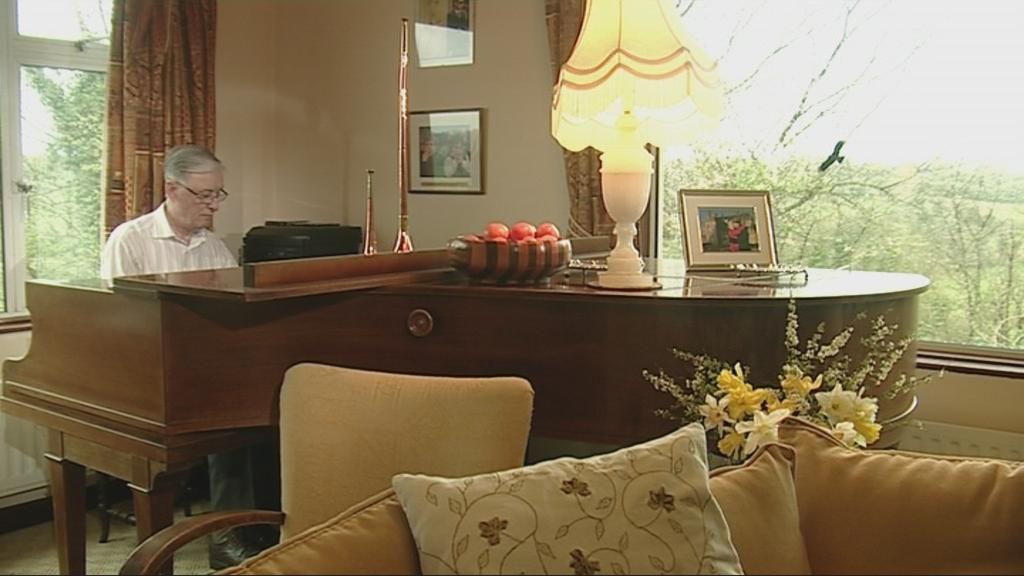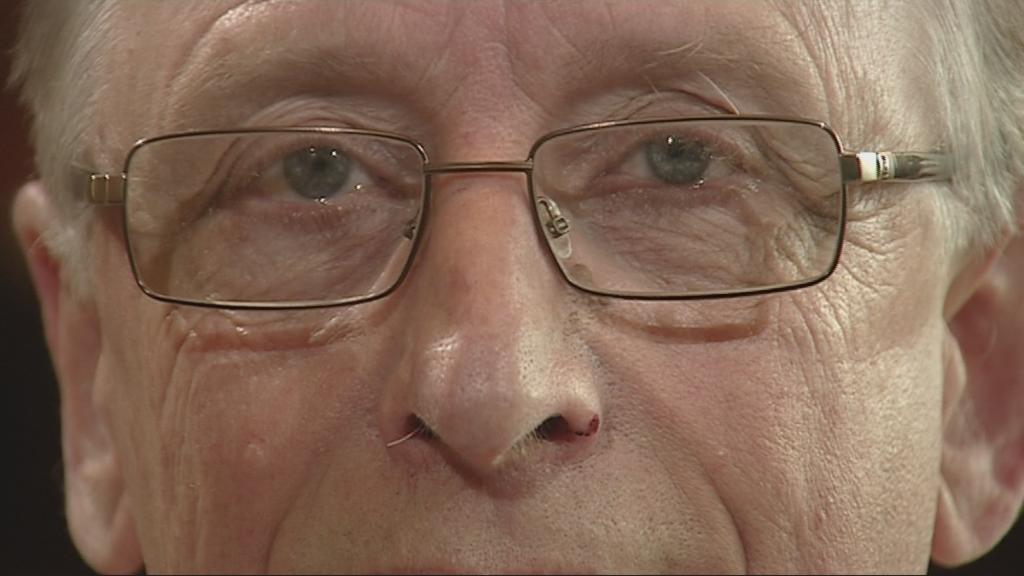A CASUAL joke…an off the cuff remark was all that it took for Bishop Brian Hannon’s life to change forever.
He was in with his local GP for a routine check-up and before leaving he made a light hearted remark about needing a cure to help him remember people’s names.
“There was just a moment of silence and then he let me go off home, and by the next day I was in the Erne Hospital with the geriatrician”.
Bishop Hannon was diagnosed with Alzheimer’s.
Twenty four hours before the former Church of Ireland bishop had been enjoying retirement on his small farm with his wife. The devastating news sent him off into a spiral of depression and confusion, but in the months that followed there would be hope for Brain in the form of the pill Aricept.
He explained: “Initially it was horrific, I couldn’t use the word Alzheimer’s for months.
“I hadn’t a clue what was going on, I’d gone into a total depression. I couldn’t tell you now what I did or didn’t do in the in-between. Then I was introduced to this little half pill.”
At the time Aricept was one of the drugs which National Institute for Health and Clinical Excellence (NICE) determined should not be prescribed on NHS, but only to people in the mild to moderate stage of Alzheimer’s.
However, since October last year NICE has overturned its guidance on Alzheimer’s drugs – Aricept, Excelon, Reminyl, and ebixa and they can now be prescribed if they benefit the patient, and for as long as that benefit lasts.
For Bishop Hannon, being put on the pill was initially a disorientating experience.
He said: “In the very early days there were some strange things happening. There were some nights when I thought that things were falling out of the sky, you thought your arms were flying and your legs were flying and your wife was very wise to get in the next door room because you had no control.
“But as the days and weeks passed and your body became accustomed to the medication, you came back down to earth and things came back to perfectly normal. The pill worked, you went to sleep, you got up and went on about your day”.
Bishop Hannon was determined to make sure people in a similar position would not be denied the drugs which he has found so beneficial.
The 75-year-old, whose son is Divine Comedy singer,Neil Hannon, has found a new lease of life and believes the medication, along with early diagnosis, helped him come to terms with his condition.
He is adamant he is living proof that dementia does not have to be a death sentence and people can still live a relatively normal life.
In recent months, he successfully re-sat his driving test. Under current law, if a person is diagnosed with Alzheimer’s the DVLA decides on whether or not that person can continue to drive. They will issue a new driving license that will be valid for a limited period and the person’s condition will be reviewed at least once a year.
He said: “ I found it no problem at all. It’s been a part of my brain method that I concentrate totally on one thing.”
“I do exactly the same thing when I’m watching a grand prix or doing my word puzzle. My brother has me on The Times code word, I’ve done 1,100 from the time it started, which is virtually every day and only twice in 1,100 have I not been able to complete it.”
The Bishop now lives just a few miles outside the small Fermanagh village of Ballinamallard and while for the time being he is quite happy to talk about the positive features he has been able to maintain despite his condition, he is all too familiar with the devastating nature of the illness.
He said: “It’s all well and good if you have the good fortune of something actually working for you, but God bless the people for who it just doesn’t work.
“If you get into the depressive thing, and I’ve known people who’ve got totally depressed and who simply walked into their home and never came out again or went other places and never came out again.”
In late 2009, 83-year-old Anne Barbour who was suffering the advanced stages of Alzheimer’s was found dead at the family home on the Sligo Road in Enniskillen.
Her husband Bill Barbour, whose body was later recovered in a nearby lough had helped her end her life before taking his own.
Bishop Hannon said: “It’s such a sad business, but yet you can’t blame this person or that person because everyone is differently affected. In my own case, thank God for how it happened, it was recognized before it grabbed a hold of me and it was accepted from the one above.”
He is still deeply spiritual and his experience over the past couple of years has left him reflecting on his own family’s history.
“I have sometimes wondered about my own father’s health and this would have been before anybody would have known what the disease was.
“Towards the end of his life his thinking had gone. I remember on one occasion when suddenly he said he had got to go to Switzerland and it was firmly in his head.
“My mother simply had to say yes that’s fine we’ll make sure you get there and all the rest of it, but by the night he had went off the idea.
“Now I haven’t had exactly that happen, but I have seen kind of links at times and I just wonder was this Alzheimer’s in some form, but nobody had a clue what it was or what was happening.”
For the meantime Bishop Hannon’s links with the Alzheimer’s Society remain strong and as the campaign to form a defined dementia strategy here continues, he is convinced more than ever that establishing more ways of catching the disease early on will improve the lives of many.
He said: “When producing a diagnosis with dementia you don’t know how it’s going to affect different people. But there is no doubt that having been spotted right at that early time, it has had this extraordinary result with me.
“Alright I’m not with it all the time, but at the same time, I’m hyper in the morning, ordinary in the afternoon and dull in the evening.”
Before I left to make the journey back to Belfast he gave me a few renditions of Danny Boy on the piano and it didn’t take me too long to work out where his son inherited his musical talent.
As I left for the door, he smiled at me from behind the grand piano that dates back to the 1800’s and asked me to call back again soon.
“You’ll probably find me here, I go about my day-to-day routine and occasionally even people like yourself call in and say- would you like to come and have a chat”.
 By
By

